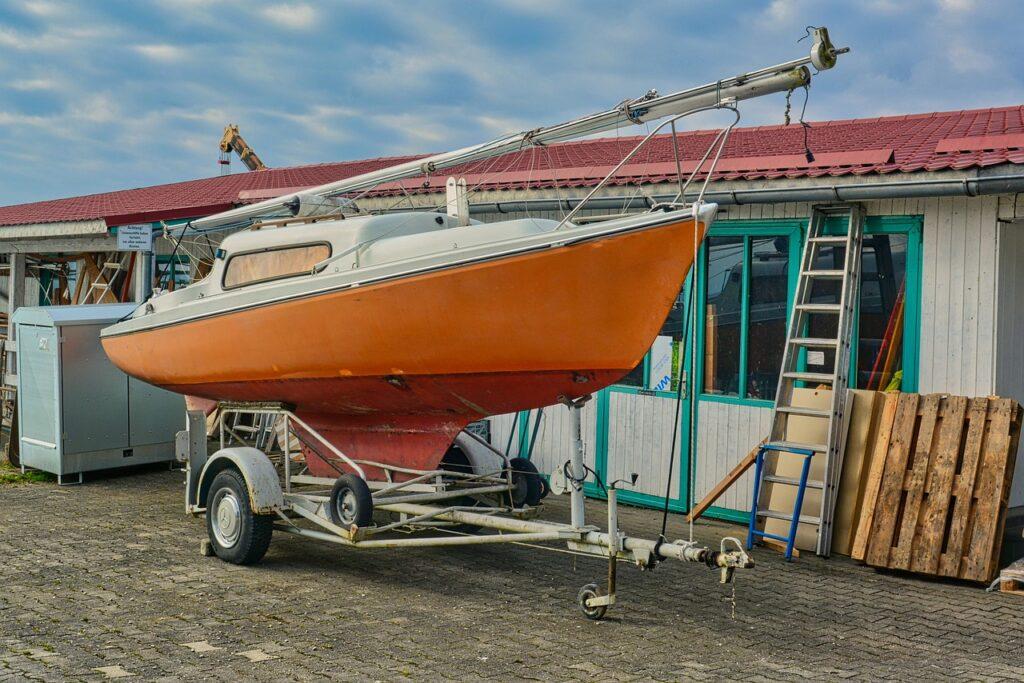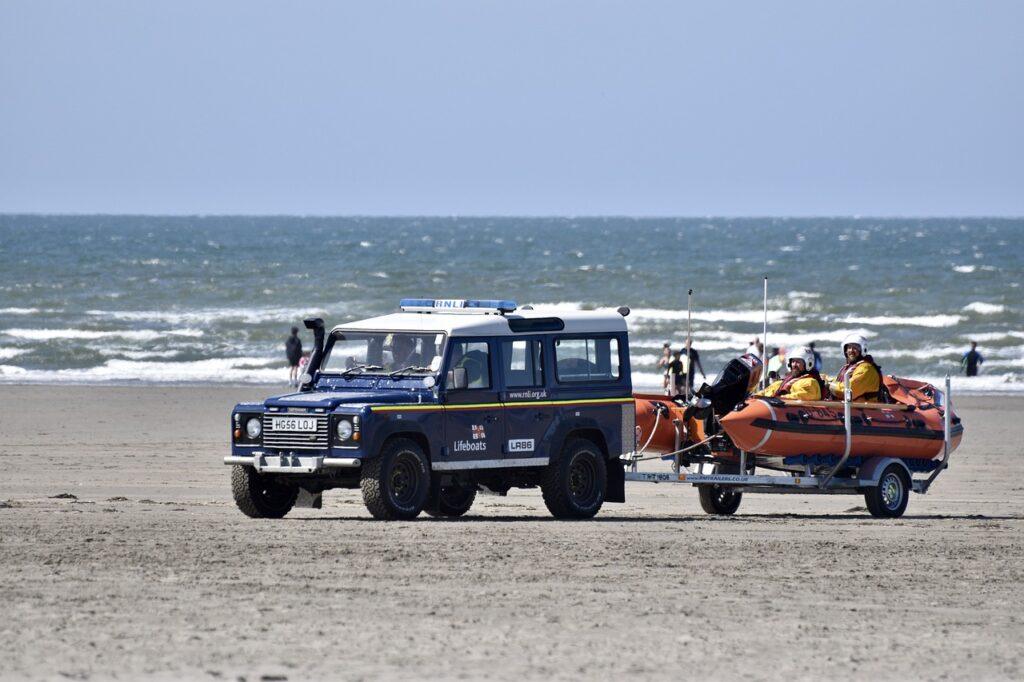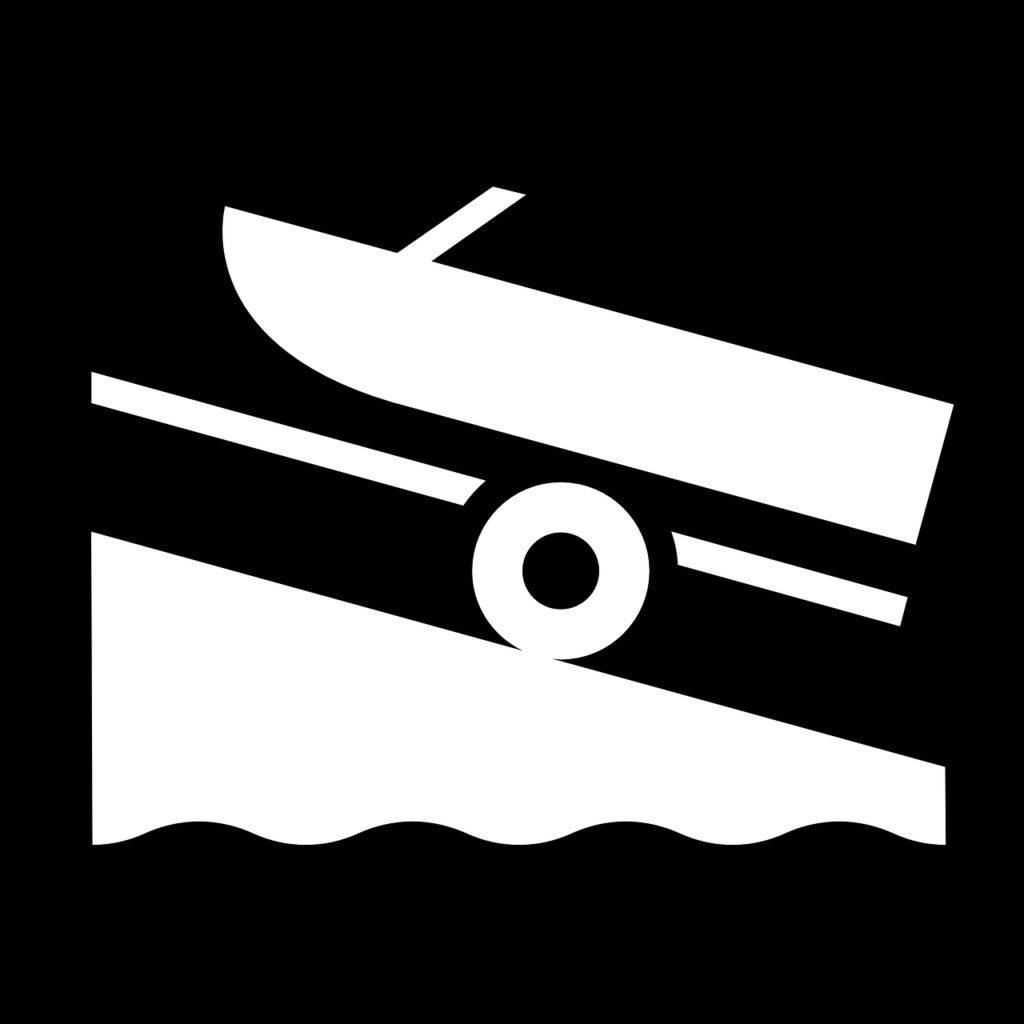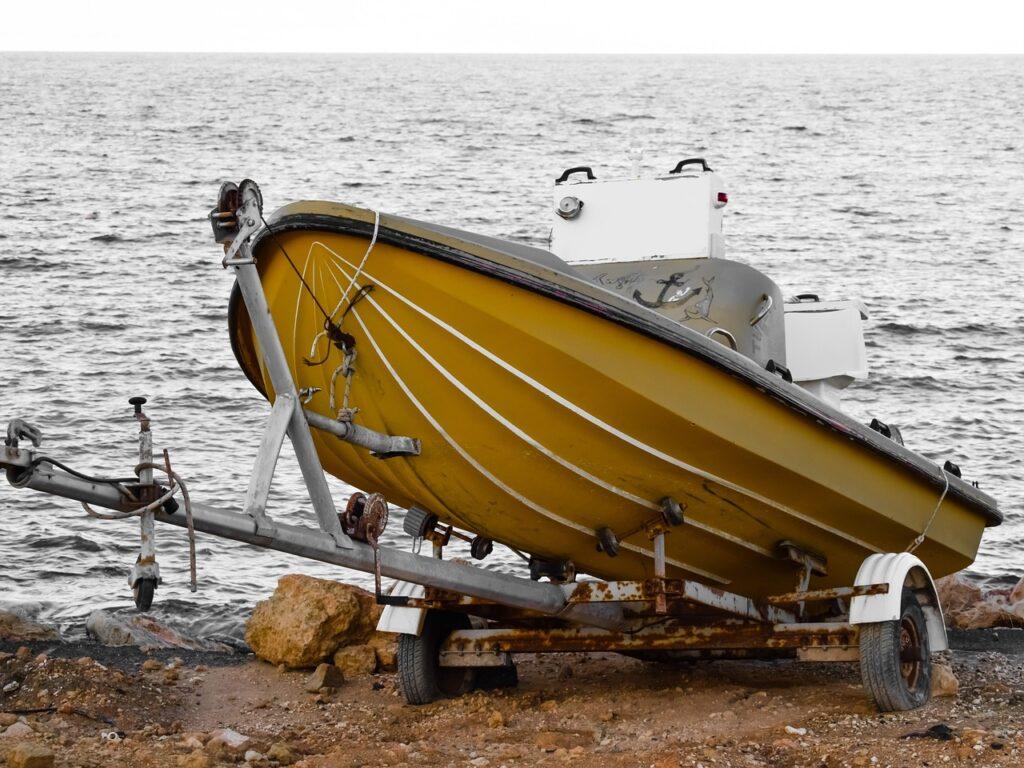Best Boat Trailer Brakes
In order to safely and effectively tow your boat trailer, it is important to equip it with the best boat trailer brakes available. Boat trailer brakes are an essential component of the trailer, as they provide the necessary stopping power to ensure that your boat is safely and securely transported to and from the water. The right boat trailer brakes can help to improve safety and make the whole process of towing much smoother.
Best Boat Trailer Brakes
The best boat trailer brakes depend on your needs, budget, and the size and weight of your boat. When selecting brakes for a boat trailer, look for brakes that offer reliable and responsive braking, as well as corrosion resistance and ease of installation. Consider the type of brakes you will need, such as disc or drum brakes. Determine the size of brakes you need for proper stopping power, and make sure the brakes are compatible with your trailer’s axle and wheel size. Research different brands and models to find the best boat trailer brakes for your needs.
- Kodiak Disc Brake Kit: Known for its durability and superior braking performance, the Kodiak Disc Brake Kit is a popular choice among boat owners. It features corrosion-resistant components and self-adjusting calipers for reliable and consistent braking.
- Tie Down Engineering G5 Stainless Steel Disc Brake Kit: This brake kit is made of high-quality stainless steel, offering excellent resistance to corrosion. It comes with vented rotors for efficient heat dissipation and a smooth braking experience.
- Demco Hydraulic Surge Brake Actuator: The Demco Hydraulic Surge Brake Actuator is a reliable choice for boat trailer brakes. It uses a hydraulic system that activates the brakes when the tow vehicle slows down or stops. It provides smooth and responsive braking, ensuring safety and control while towing.
- Dexter Electric Drum Brake Kit: The Dexter Electric Drum Brake Kit is designed for boat trailers equipped with electric brake systems. It offers reliable stopping power and is easy to install. The kit includes all the necessary components for a complete brake system.
- UFP by Dexter Hydraulic Disc Brake Kit: This hydraulic disc brake kit is designed for boat trailers and offers reliable and consistent braking performance. It features a vented rotor design for enhanced cooling and durability. The UFP by Dexter Hydraulic Disc Brake Kit is known for its high-quality construction and easy installation.
- Titan Hydraulic Surge Brake Actuator: The Titan Hydraulic Surge Brake Actuator is a popular choice for boat trailer brakes. It features a durable construction and a self-adjusting design for reliable braking. It is designed to fit a variety of trailer couplers and provides smooth and responsive braking.
- Hayes-Lemmerz Energize III Electric Brake Controller: If you have an electric brake system on your boat trailer, the Hayes-Lemmerz Energize III Electric Brake Controller is a top choice. It offers precise control over the trailer brakes and features advanced features such as automatic leveling and diagnostics.
Consider the cost of brake maintenance and replacement when selecting boat trailer brakes. Ensure that the brakes you choose are easy to service and maintain, so that you can keep them in good condition. Look for brakes that have a good warranty, so that if they do need to be replaced, you have the peace of mind of knowing that the cost of replacement will be covered. Consider the overall quality of the brakes, as a good quality brake system can significantly improve your safety on the road.

Types of Boat Trailer Brakes
There are two main types of boat trailer brakes – electric and hydraulic. Electric brakes are powered by electricity, while hydraulic brakes use a hydraulic system to power the brakes.
- Surge Brakes: Surge brakes are a type of hydraulic braking system commonly used in boat trailers. They operate using the forward motion of the trailer, and when the tow vehicle slows down or stops, the surge in pressure activates the brakes. Surge brakes are popular for their simplicity and reliability.
- Electric Drum Brakes: Electric drum brakes use an electric current to activate the braking mechanism. When the brake pedal is pressed in the tow vehicle, an electrical signal is sent to the trailer’s brake controller, which then applies the brakes. Electric drum brakes are commonly used on boat trailers and offer effective braking performance.
- Electric Over Hydraulic Brakes: Electric over hydraulic brakes combine the benefits of electric and hydraulic braking systems. They use an electric brake controller to convert the electrical signal from the tow vehicle into hydraulic pressure, which is then used to activate the trailer brakes. Electric over hydraulic brakes provide efficient and responsive braking, making them suitable for larger boat trailers.
- Disc Brakes: Disc brakes are a popular choice for boat trailers due to their superior stopping power and heat dissipation capabilities. They use a caliper and rotor system to apply friction and slow down the trailer. Disc brakes are known for their reliable performance, reduced maintenance requirements, and resistance to water-related issues.
- Hydraulic Drum Brakes: Hydraulic drum brakes are similar to electric drum brakes but operate using hydraulic pressure instead of an electric current. They offer reliable braking performance and are commonly used in boat trailers. Hydraulic drum brakes require a hydraulic actuator and brake lines for operation.
Both types of brakes offer excellent stopping power, but electric brakes tend to be more reliable and require less maintenance.
Electric Boat Trailer Brakes
They are a type of braking system designed specifically for trailers that carry boats. They use an electric motor to actuate the brakes, typically located on the trailer’s axle, and are used to help slow or stop the trailer when it is being towed. Electric boat trailer brakes are generally either drum brakes or disc brakes, and they come with a variety of features, such as a manual override system, to ensure safe and efficient braking.
Advantages
Electric brakes offer excellent stopping power and are more reliable than hydraulic brakes. They require very little maintenance and are easy to install and operate. They are also more efficient than hydraulic brakes, as they use less energy to operate.
Disadvantages
Electric brakes are more expensive than hydraulic brakes, and they require an external power source, such as a battery or generator, to operate. They are also more complex to install and maintain.
Hydraulic Boat Trailer Brakes
They are a type of trailer brakes that use hydraulic pressure to activate the brakes and stop the trailer. They are designed to provide superior stopping power and increased safety when towing a boat. They are typically more expensive than electric brakes, but they offer better braking performance and are easier to maintain.
Advantages
Hydraulic brakes offer excellent stopping power and are relatively easy to install and operate. They are also more affordable than electric brakes, and they require no external power source.
Disadvantages
Hydraulic brakes require more maintenance than electric brakes, and they are less efficient, as they use more energy to operate. They also tend to be less reliable than electric brakes.
Factors to Consider When Choosing Boat Trailer Brakes

When choosing the best boat trailer brakes for your trailer, there are several factors to consider. The first and most important factor is the size of your trailer, as the size of the brakes must be matched to the size of the trailer.
Our other article worth checking: how to use interceptors on Your boat
You should consider the weight of the boat and trailer, as the brakes must be capable of stopping this weight. It is also important to consider the type of terrain you will be towing the trailer over, as some types of brakes may not be suitable for certain types of terrain.
Towing Capacity
Towing capacity is a measure of how much weight a vehicle can tow safely. It is determined by the vehicle’s engine size, transmission type, axles, suspension, and other parts. The capacity varies by make and model, so it’s important to consult the vehicle’s manual or manufacturer’s website to determine the exact capacity. It is not so connected but if You are talking comfort see best boat trailer locks info.
Advantages
The towing capacity of the brakes is an important factor to consider when choosing the best boat trailer brakes. The brakes must be able to stop the weight of the boat and trailer, as well as any additional weight that may be added due to extra gear or passengers.
Disadvantages
If the brakes are not rated to handle the weight of the boat and trailer, they may not be able to stop the trailer in time, which could lead to an accident. It is important to ensure that the brakes you choose are rated to handle the weight of the boat and trailer.
Durability
Durability is the ability of an object or material to withstand wear and tear over time. It is the measure of how long something will last or remain in good condition when subjected to regular use or exposure to environmental factors. Durability is an important factor to consider when purchasing items such as furniture, clothing, and other goods.
Advantages
The durability of the brakes is another important factor to consider. The brakes must be able to withstand the elements, as well as regular use, in order to ensure that they last for as long as possible.
Disadvantages
If the brakes are not durable enough, they may require more frequent maintenance and replacement, which can be costly. It is important to choose brakes that are durable and long lasting.
Installation

Once you have chosen the best boat trailer brakes for your trailer, it is important to install them correctly. The brakes should be installed in accordance with the manufacturer’s instructions, and all of the necessary hardware should be included with the brakes. Make sure that the brakes are properly adjusted and that the necessary safety features, such as wheel chocks and safety chains, are in place.
Once the brakes have been installed, it is important to maintain them properly. This includes checking the brakes regularly for any signs of wear and tear, and ensuring that all of the necessary parts are in good condition. Brakes should be inspected for any possible malfunctions, as this could affect their performance.
Cost is also an important factor to consider when choosing boat trailer brakes. Electric brakes are typically more expensive than hydraulic brakes, but they also tend to be more reliable and require less maintenance. Factor in the cost of installation and any necessary accessories, such as a brake controller and wiring harness.
Brake Controllers
A brake controller is an electronic device that is installed in a vehicle to activate the electric brakes on a trailer. It monitors the vehicle’s brake system and applies the electric brakes on the trailer in response to the driver’s braking action. Brake controllers usually have adjustable settings that allow the driver to control the amount of force applied to the trailer brakes or trailer rollers.
Advantages
Brake controllers are an essential component of boat trailer brakes, as they allow the brakes to be activated when the trailer is in motion. They also help to ensure that the brakes are applied evenly and that the stopping power is consistent.
Disadvantages
Brake controllers can be expensive and require regular maintenance, as they are subject to wear and tear. Additionally, they require a wiring harness and other accessories to be connected to the trailer’s electrical system.
Wiring Harness
A wiring harness is a pre-assembled collection of wires, terminals, and connectors that are used to connect two or more electrical components within a system. Wiring harnesses are an essential part of most electrical systems, as they provide a neat and organized way of connecting components while eliminating the need to cut and splice individual wires.
Advantages
A wiring harness connects the brake controller to the trailer’s electrical system and is an essential component of the brake system. They are relatively inexpensive and easy to install, and they ensure that the brakes are connected properly.
Disadvantages
The wiring harness must be connected correctly in order to ensure that the brakes are operating properly. If the wiring harness is not connected correctly, it could lead to poor performance or a malfunction.
Safety
In addition to choosing the best boat trailer brakes, it is important to ensure that they are properly installed and maintained. It is important to use wheel chocks and safety chains when towing a boat trailer, as these can help to prevent the trailer from moving or slipping when in motion.
Which is better hydraulic or electric trailer brakes?

It depends on the application. Hydraulic brakes are generally better for heavier trailers and for off-road use, while electric brakes are usually better for lighter trailers and for on-road use. Electric brakes are also easier to install and maintain.
In terms of performance, hydraulic brakes tend to be more reliable, as they are less susceptible to corrosion and provide more consistent stopping power, while electric brakes may require more frequent maintenance and can be less effective in wet or icy conditions. Electric brakes are also typically more affordable than hydraulic brakes. Best option for you depends on the size You have measured and weight of your trailer, the terrain you plan to use it in, and your budget.
FAQs
What type of boat trailer brakes is best for my boat?
The best type of boat trailer brakes depends on various factors such as the weight of your boat, the towing conditions, and personal preferences. Surge brakes are popular for their simplicity and reliability, while electric drum brakes offer effective braking performance. Electric over hydraulic brakes provide the benefits of both electric and hydraulic systems, and disc brakes offer superior stopping power. Consider your specific needs and consult with experts or a trailer manufacturer to determine the best option for your boat trailer.
Can I upgrade the brakes on my existing boat trailer?
In many cases, it is possible to upgrade the brakes on an existing boat trailer. Feasibility of the upgrade depends on the trailer’s design, compatibility, and the availability of compatible brake systems. It is recommended to consult with a professional trailer service or a knowledgeable dealer to assess whether an upgrade is feasible and which brake system would be the best fit for your trailer.
Do I need brakes on my boat trailer?
The requirement for brakes on a boat trailer varies depending on local regulations and the weight of the boat and trailer combination. In many jurisdictions, boat trailers with a certain gross weight or boat length may be required to have brakes. Even if not required, having brakes on your boat trailer can enhance safety and provide better control during towing, especially when hauling larger boats. It is important to familiarize yourself with the specific regulations in your area and consider the safety benefits of having brakes on your boat trailer.
Conclusion
Choosing the best boat trailer brakes is essential for safe and efficient towing. There are two main types of boat trailer brakes – electric and hydraulic – and it is important to consider the size of your trailer, the weight of the boat and trailer, and the type of terrain you will be towing over when choosing the right brakes. Proper installation and regular maintenance are essential for ensuring that the brakes perform as expected.
